
Steeleye Span are a British folk rock band formed in 1969 in England by Fairport Convention bass player Ashley Hutchings and established London folk club duo Tim Hart and Maddy Prior. The band were part of the 1970s British folk revival, and were commercially successful in that period, with four Top 40 albums and two hit singles: "Gaudete" and "All Around My Hat".

Ashley Stephen Hutchings, MBE, sometimes known in early years as "Tyger" Hutchings, is an English bassist, songwriter, arranger, band leader, writer and record producer. He was a founding member of three noteworthy English folk-rock bands: Fairport Convention, Steeleye Span and The Albion Band. Hutchings has overseen numerous other projects, including records and live theatre, and has collaborated on film and television projects.

Martin Carthy is the debut solo album by English folk musician Martin Carthy, originally released in 1965 by Fontana Records and later re-issued by Topic Records. The album features Dave Swarbrick playing fiddle or mandolin on a number of the tracks. Swarbrick was not headlined on the album for contractual reasons as he was with the Ian Campbell Folk Group at the time with permission granted by Transatlantic Records.
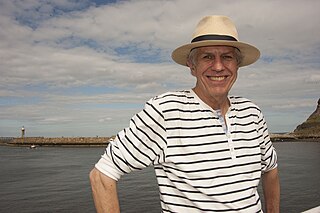
John Michael Kirkpatrick is an English musician, best known as a player of free reed instruments.
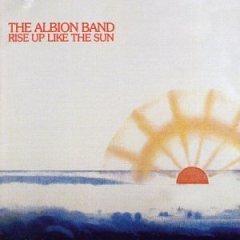
Rise Up Like the Sun is a British folk rock album released in 1978 by The Albion Band. The album is in part a collaboration between John Tams on vocals and melodeon and Ashley Hutchings on electric bass. This is not the first album on which the two worked together but it remains the most fulfilling for listeners. To build the sound Hutchings brought in two of his former compatriots from Fairport Convention, Dave Mattacks on drums and tambourine and Simon Nicol on vocals and electric and acoustic guitars. In addition another ex-member of Fairport, Richard Thompson, contributed songs and backing vocals. Having assembled the principal contributors and an ambiance that encouraged their friends to drop in, Hutchings gave Tams the freedom to act as the project's musical director. They were joined by Philip Pickett on shawms, bagpipes, curtals and trumpet, Pete Bullock on synthesiser, piano, clarinet, sax, and organ, Michael Gregory on percussion, Ric Sanders on violin and violectra and Graeme Taylor on electric and acoustic guitars. Kate McGarrigle, Julie Covington, Linda Thompson, Pat Donaldson, Martin Carthy, Andy Fairweather-Low and Dave Bristow make guest appearances.
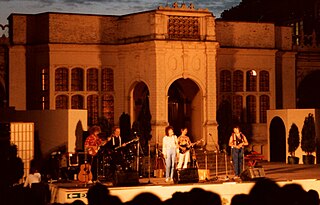
The Albion Band, also known as The Albion Country Band, The Albion Dance Band, and The Albion Christmas Band, were a British folk rock band, originally brought together and led by musician Ashley Hutchings. Generally considered one of the most important groupings in the genre, it has contained or been associated with a large proportion of major English folk performers in its long and fluid history.

Now We Are Six is the sixth studio album by British folk rock band Steeleye Span. Its title refers to both its sequence among their albums, and the band's size, in light of the addition of drummer Nigel Pegrum. The album was released in 1974 through Chrysalis Records. It reached number 13 in the UK albums chart.

Liege & Lief is the fourth album by the British folk rock band Fairport Convention. It is the third album the group released in the UK during 1969, all of which prominently feature Sandy Denny as lead female vocalist, as well as the first to feature future long-serving personnel Dave Swarbrick and Dave Mattacks on violin/mandolin and drums, respectively, as full band members. It is also the first Fairport album on which all songs are either adapted (freely) from traditional British and Celtic folk material, or else are original compositions written and performed in a similar style. Although Denny and founding bass player Ashley Hutchings quit the band before the album's release, Fairport Convention has continued to the present day to make music strongly based within the British folk rock idiom, and are still the band most prominently associated with it.

Simon John Breckenridge Nicol is an English guitarist, singer, multi-instrumentalist and record producer. He was a founding member of British folk rock group Fairport Convention and is the only founding member still in the band. He has also been involved with the Albion Band and a wide range of musical projects, both as a collaborator, producer and as a solo artist. He has received several awards for his work and career.

Storm Force Ten is the tenth studio album by British folk rock band Steeleye Span, released in 1977 by Chrysalis Records. Until their 2013 album Wintersmith, released 36 years after Storm Force Ten, this album was the band's last production to reach the charts, topping out at 191 on Billboard's Pop charts. After Rocket Cottage, Bob Johnson and Peter Knight left the band. As there was still a contractual obligation, they invited Martin Carthy back again. Back in 1971 when Martin Carthy had joined he had recommended John Kirkpatrick but they decided on fiddler Peter Knight instead. This time they accepted his recommendation and Kirkpatrick's fiery accordion playing replaced Knight's fiddle.
Glasgerion is Child ballad 67,, existing in several variants.

Battle of the Field is a folk rock album by the Albion Country Band, recorded in summer 1973 immediately prior to the band's breakup and only released in 1976 following public demand.
The Bunch were a British folk rock band, which came together in 1971 to record their one off album, Rock On.
"A Sailor’s Life" is an English language folk song which describes the attempt of a young woman to find her lover, a sailor. Eventually she hears that he has drowned and mourns him.
Tony Cox is a British record producer and arranger. As such he was influential in late 1960s and 1970s folk rock developments and the fledgling progressive rock scene, and has since worked primarily as a composer and orchestrator.
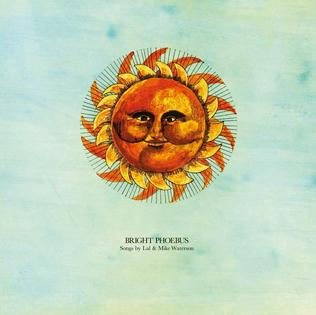
Bright Phoebus, fully titled Bright Phoebus: Songs by Lal & Mike Waterson, is a folk rock album by Lal and Mike Waterson. It was recorded in May 1972 with musical assistance from various well-known members of the British folk rock scene. The album failed to make an impact on its original release, but it was subsequently championed by many musicians, including Billy Bragg, Arcade Fire, Richard Hawley and Jarvis Cocker. For years the album was difficult to obtain. In 2017, a re-release of Bright Phoebus was announced and shortly thereafter pulled from the market for legal reasons.

Because It's There is an album by Martin Carthy, released in 1979. It was re-issued by Topic Records on CD in 1995.
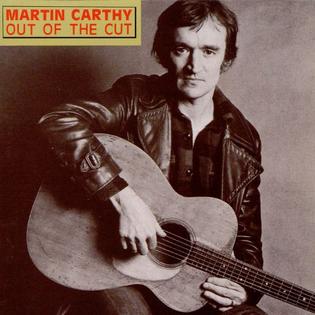
Out of the Cut is an album by Martin Carthy, released in 1982. It was re-issued by Topic Records on CD in 1994.

Stroll On is the debut album by British singer-songwriter Steve Ashley. It was released in April 1974 in LP format on Gull Records and was critically acclaimed in the UK, being awarded “Contemporary Folk album of the Year” in the leading monthly folk magazine, Folk Review. It has been described as "a masterful, beautifully textured and gentle epic" and "a masterpiece of its kind – a beautiful, rich and deeply atmospheric collection of very English songs, like a musical impression of Dickens, Victorian Christmas cards and Thomas Hardy’s Wessex with a running concept concerning seasonal change". According to the music collectors' magazine Goldmine, it is "one of the key albums in the entire history of English Folk Rock".

Byker Hill is the third solo album by English folk musician Martin Carthy, originally released in 1967 by Fontana Records and later re-issued by Topic Records. The album features Dave Swarbrick playing fiddle on a number of the tracks.
















